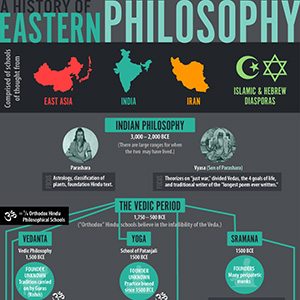I have discussed here and here my analysis of authors as belonging to a continuum of which the two extremes are the category of “artists” (they want to impress with a great narrative, and see their writings as works of art) and that of “communicators” (they want to engage in discussion, and see their writings as open to modifications).
Category Archives: methodology
Garfield (and Daya Krishna) on intercultural philosophy and the power of languages
Jay Garfield’s research may interest you or not, but his methodological musings are worth reading anyway. Here I linked to the interview where he compared the exclusion of Indian philosophy from syllabi, justified on the basis of the fact that there are already enough Western philosophers to work on and one does not have time to focus on anything else, to the exclusion of female philosophers based on the motivation that “We have already enough men whose works we need to study”.
Now, I have just read (the German translations of) an article of him on Polylog 5 (2000), which recounts his adventures in intercultural philosophy.
Updates concerning the 3quarksdaily philosophical blog prize
A chart of the “History of Eastern Philosophy”
Most readers will have already noted this chart of “Eastern Philosophy” at Superscholar.

Now, I have already commented about it at DailyNous, but the staff of Superscholars has written to me twice to advertise the map, so that I feel compelled to repeat my comment and some further ones here. I would also like to ask readers: Do you think these maps have some use at all? If so, for whom? Beginners or Advanced scholars?
Daya Krishna’s “Creative Encounters with Texts”
Daya Krishna was an Indian philosopher, a rationalist and iconoclast, who constantly tried to question and scrutinise acquired “truths”. The main place for such investigations was for him a saṃvāda ‘dialogue’. That’s why he also strived to organise structured saṃvāda inviting scholars from different traditions to debate about a specific problem. The minutes of such dialogues have been published in Saṃvāda and Bhakti.
Where to publish a book on Sanskrit (or) Philosophy?
Where should one publish one’s book? What are advantages and disadvantages of each venue? I will start sharing my views and would be glad to read yours (PLEASE NOTE that I cannot be exhaustive and in this sense I depend on my readers —suggest further venues or important points, if you deem them relevant).
Please remember that I am speaking about young authors (well-known ones will not need me).
You are not too busy, just disorganized
Let us face it: We do not work in optimal work conditions. The ones of us who work in the US or in a US-similar system are always under pressure in order to find a job (whatsoever), then to find a tenured-track position, then to have their tenure confirmed and then to have enough articles per year. The ones of us who work in Europe or in a Europe-similar system are constantly precarious, spend their lives applying for projects and have to overcommit to many projects in order to survive.
A non-funded project on deontic logic —And some general notes on peer-reviewing projects
Some months ago, departing from Decemeber 2013, I started working on a fascinating project, the formalisation of the deontic logic of some Mīmāṃsā authors (Kumārila, Prabhākara and Maṇḍana). Given that I am not an expert on formal logic, the project has been conceived together with some colleagues working on formal logic and on the IT tools for automating it. After some preliminary work, we submitted a project within the “Mathematics and…” call of the WWTF. The other principal investigator was Agata Ciabattoni and the other collaborators were Björn Lellmann and Ekaterina Lebedeva. Agata and Björn would have been working with me on selecting the logical rules from the relevant Sanskrit texts, translating them in formal logical language and developing automated deduction methods to reason about them.
Ekaterina, as a linguist and an expert of the intersection of language and logic, would have taken care of the fact that our translations of Sanskrit passages into logical rules did not entail logical ambiguities.
EAAA conference in Olomouc
I just came back from Olomouc, where I attended the first conference of the European Association of Asian Art and Archaeology. It was my first conference entirely dedicated to Art and I found out some interesting things:

…you can read what works for me at the Warp, Weft and Way blog. Don’t forget to comment, here or there, about what works for you.